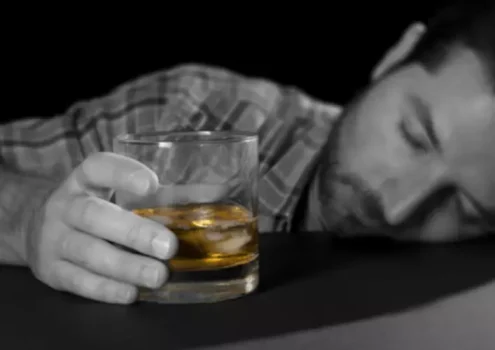
Stomach bloating specifically is linked to a variety of causes. In addition, certain types of energy drinks contain other ingredients that could contribute to dehydration. When you’re feeling thirsty or dehydrated, reaching for a refreshing beverage may seem like common sense. We created our BodyBio E-Lyte concentrate to counteract the effects of dehydration and boost electrolyte and mineral stores to help alleviate symptoms across the board.
How to Hydrate After Drinking
Of course, the more you urinate, the faster you’ll become dehydrated if you keep following up with more glasses of wine. Generally, if you have already eaten a meal or if you are drinking a glass of wine with your meal, you won’t experience many of the effects of dehydration, if any. However, if you have an empty stomach, a single glass of wine will cause mild dehydration if you don’t follow it up with a glass of water within the hour. Even though wine contains some amount of water no matter what, wine indeed dehydrates you to a certain extent if you drink it without matching each serving with a glass of water in turn. Sugary drinks don’t have the same problems, unless you have difficulty regulating your blood sugar.

You Don’t Need AA To Get Sober…But You Need Something
After a night of drinking, you may have gaps in memory, in which you recall some details from a situation or event but forget others. Alcohol’s impact on memory and consciousness Sober living house is based on its effect on the hippocampus, the part of the brain that controls memory and learning. While alcohol can initially boost your mood, these effects are temporary and wear off quickly.
- Excessive urination from drinking alcohol causes your body to lose electrolytes, which are important minerals involved in many bodily functions, including nervous system function (4).
- However, the alcohol content in wine, typically between 11% and 14%, is a major contributor to its dehydrating effect.
- Red wine has long been touted for its potential health benefits, from its heart-protective properties to its potential role in preventing certain types of cancer.
- Dehydration can impair physical coordination and reaction time, leading to an increased risk of accidents, such as falls or injuries.
- You can thank your healthily functioning blood vessels for that.
- Chronic heavy drinking can result in high blood pressure, which is a leading cause of kidney disease.
- Alcohol will dehydrate you, which has adverse effects both in the short and long term.
Signs of Dehydration After Drinking Alcohol
Over time, mass mineral and electrolyte deficiencies can lead to rapid dehydration when alcohol enters the picture. A meal or snack can help restore some of the nutrients lost from dehydration while soaking up any alcohol still in your digestive tract. You’ll also want to include a quick dose of electrolytes, which work on a cellular level to carry much-needed fluids in and out of the cell. Knowing and listening to your own body is the best way to prevent a hydration mishap — or really, any medical mishap.
In addition, cocktails with sugary mixers or caffeinated alcoholic beverages can amplify fluid loss and worsen alcohol-related dehydration. The Centers for Disease Control and Prevention (CDC) recommends that men don’t exceed two alcoholic drinks in a day and that women limit alcoholic beverages to one drink or less. Don’t assume that a single glass of wine will overly dehydrate you, but keep in mind that wine is generally dehydrating compared to other alcoholic beverages like beer. It seems simple, but water truly is the best beverage when it comes to fast rehydration. It’s very easy for your body to process and for your intestines to absorb. If you drink a glass of water for each glass of wine you down, you may never feel the effects of dehydration at all (and you’ll still get a slight, though pleasant, buzz).
But it’s important to note that many alcoholic beverages exceed those concentrations. Craft beers can be particularly misleading because while they have an ABV closer to that of wine, they’re generally served in much larger portions. As the name suggests this hormone normally prevents urine production so when you lower its levels that leads to an increase in the amount of urine you produce. However, the exact amount of alcohol that increases urine production can vary from person to person. It’s safe to say that if you drink a lot that will always cause a problem.

Dehydration is also a big part of why you get a hangover after drinking too much. It’s hard to overestimate the importance of water to the body. Having the right balance of fluid in your system is essential for your body to carry out basic functions. The best hangover electrolytes contain at least 1,000 milligrams of potassium and no more than 40 milligrams of sodium. Sodium is an electrolyte mineral found in many foods, and most people obtain adequate amounts from table salt. If you are experiencing serious medical symptoms, please see the National Library of Medicine’s list of signs you need emergency medical attention or call 911.
Study Finds Two Common Gynecological Disorders Linked To Increased Risk Of Early Death
Other lifestyle factors, such as exercise, climate, and medication use, can also impact alcohol’s dehydrating effects. If you mix alcohol with caffeinated drinks (ex. rum and Coke), you’re also increasing your dehydration factor, as caffeine will make you pee more which leads to further dehydration. The research shows, essentially, that drinking an initial amount of alcohol does wine make you dehydrated will cause more urine output than drinking the same initial amount of water (or other non-alcoholic liquid).
How to counteract alcohol-induced dehydration

Mind you, you’ll be a bit better off than if you didn’t drink any extra water at all, but you’ll still be dehydrated. But you still have just as many salts floating in this reduced volume of water. Third, we humans seem to prefer to drink our alcohol in 10 gram lumps.
- However, the exact amount of alcohol that increases urine production can vary from person to person.
- The good news is that you are exposed to a lot less of it than alcohol when you drink.
- Moderating your intake of energy drinks and alcoholic beverages is an easy way to prevent dehydration.
- This effect is also known as “breaking the seal,” which is why you pee a lot more after a few drinks.
- A 12-oz beer with 5 percent ABV is going to be far less dehydrating than the same size beer with 12 percent ABV, for instance.
- Mind you, you’ll be a bit better off than if you didn’t drink any extra water at all, but you’ll still be dehydrated.
If you’re 100 kilos, it’s a 100 ml of urine – 110 is a 110 ml of urine per hour. And also the alcohol you’re taking into your body interferes with the mechanisms that regulate the water in your body. So basically there’s a chemical inside your body called ADH which regulates the amount of urine that you excrete, so you’re trying to keep water inside your system.
